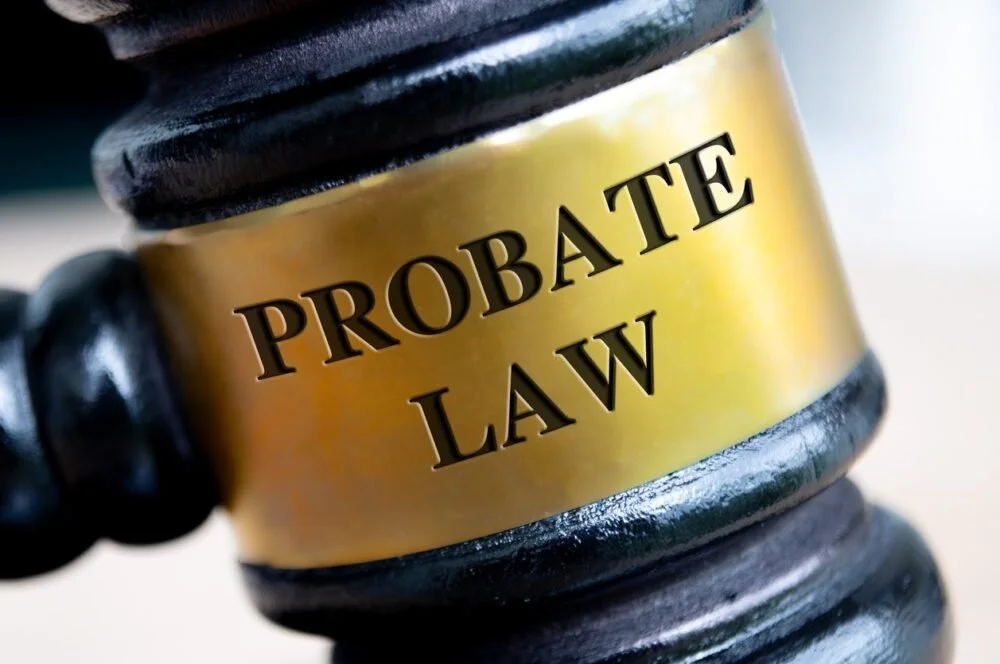Probate in Virginia: What It Is, How It Works, and How to Avoid It
Probate is a term that may be mysterious or sound daunting, and for good reason. It’s a legal process that can significantly impact how your affairs are handled after your passing. At Wakefield Law, we understand the complexities of probate in Virginia and are here to guide you through understanding it, its implications, and how to potentially avoid it. Let’s dive into what probate is, how it works, and why planning ahead can save your loved ones time, distress, and money.
What Is Probate?
Probate is the court-supervised process of validating a deceased person’s will (if one exists), settling debts, and distributing assets to the rightful heirs. In Virginia, probate is typically required if the decedent owned assets solely in their name without designated beneficiaries.
The primary purpose of probate is to:
Authenticate the will (if one exists).
Appoint an executor or administrator to manage the estate.
Identify and inventory the decedent’s assets.
Pay outstanding debts and taxes.
Distribute the remaining assets to beneficiaries or heirs.
While it serves an important function in ensuring legal oversight, probate can also be time-consuming, expensive, and emotionally taxing for your loved ones.
How Does Probate Work in Virginia?
The probate process in Virginia follows these general steps:
Filing the Will and Petitioning the Court
The executor named in the will (or an interested party if there is no will) must file a petition with the circuit court in the jurisdiction where the deceased resided.
Appointment of Executor or Administrator
If there is a will, the court appoints the executor named in it. If there is no will, the court will appoint an administrator to handle the estate. This is one of the most frequent points of conflict, and can be subject to a lengthy legal battle.
Inventory and Appraisal
The executor or administrator must identify and inventory all assets, including real estate, personal property, and financial accounts, and may need to obtain appraisals for certain items.
Payment of Debts and Taxes
The estate is responsible for settling outstanding debts and paying any applicable taxes, including federal estate taxes, if applicable.
Distribution of Assets
After debts and taxes are paid, the remaining assets are distributed to the beneficiaries or heirs as dictated by the will or Virginia’s intestacy laws.
A full probate takes at a minimum six months and one day, but can even take years, depending on the size and complexity of the estate (or potential conflict).
Why Is Probate a Significant Obstacle?
For many families, probate creates several challenges:
Delays: The probate process can be lengthy, often delaying access to inherited assets.
Costs: Probate involves court fees, executor fees, and possibly attorney fees, which can reduce the value of the estate.
Lack of Privacy: Probate proceedings are a matter of public record, meaning details about your estate and its distribution can be accessed by anyone.
Emotional Stress: Managing probate can be overwhelming for grieving loved ones, especially if disputes arise among beneficiaries.
How to Avoid Probate in Virginia
The good news is that probate isn’t inevitable. With proper planning, you can reduce or eliminate the need for probate altogether. Here are some strategies to consider:
Establish a Revocable Living Trust
By transferring your assets into a revocable living trust, you can ensure that they pass directly to your beneficiaries without going through probate. The trustee you designate will manage and distribute the assets according to your instructions.
Name Beneficiaries
Designate beneficiaries on accounts such as life insurance policies, retirement accounts, and payable-on-death (POD) or transfer-on-death (TOD) accounts.
Joint Ownership
Owning property jointly with rights of survivorship ensures that the property automatically passes to the surviving owner upon your death.
Gift Assets During Your Lifetime
Gifting assets to your heirs during your lifetime reduces the size of your estate and may help avoid probate.
Use Small Estate Procedures
Virginia offers a simplified process for estates valued under a certain threshold. By keeping your estate small, your loved ones may qualify for this expedited process.
Start Planning Today
Navigating probate can be a significant burden on your loved ones during an already challenging time. By planning ahead and taking steps to avoid probate, you can provide them with peace of mind and ensure that your wishes are carried out smoothly.
At Wakefield Law we specialize in estate planning with a focus on probate avoidance. Our experienced attorneys are here to help you develop a comprehensive plan tailored to your unique circumstances. Contact us today to schedule a free consultation and take the first step toward protecting your legacy. 703.771.9740

